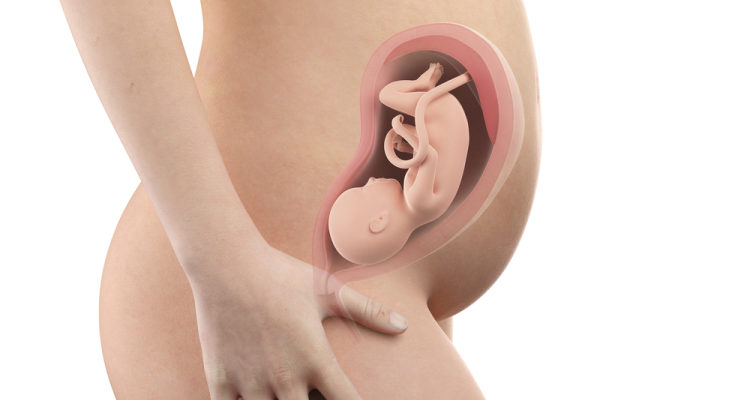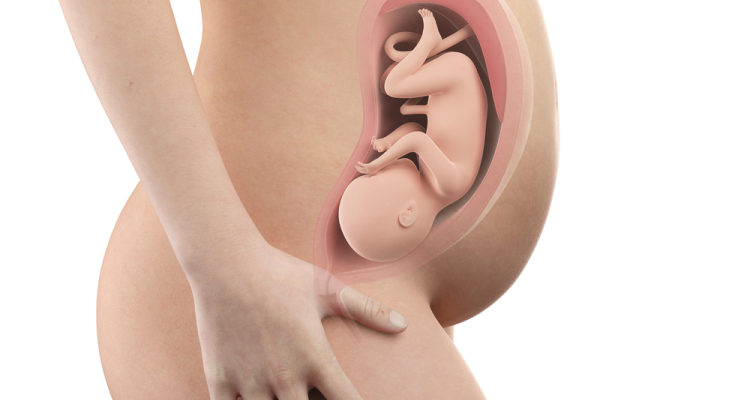Week 9

Many pregnant mothers wonder how their 9-week-old fetus has developed. So let's explore with aFamilyToday Health now!
Vaginal yeast infections can cause vaginitis . This is a common occurrence in pregnant women. But if you don't know how to treat a yeast infection, it can cause a very dangerous complication, which is a miscarriage.
Currently, the US Food and Drug Administration (FDA) has issued a warning that doctors should not prescribe Fluconazole (brand name Diflucan) to treat vaginal yeast infections because of an association. relationship between the risk of miscarriage and the use of this drug.
Vaginal yeast infections are known as Candida infections and usually occur in women. The cause of this disease is the fungus Candida Albicans. It causes itching, redness and irritation in the vaginal area.
Vaginal fungus can be spread by contact during sex , but it is not classified as a sexually transmitted infection.
The most common symptoms are itchy vagina and vulva, white clumpy discharge, sometimes slightly sticky. In addition, in some cases, vaginal discharge may also appear purulent.
You may experience other symptoms and signs that have not been mentioned. If you have any questions about the symptoms, consult your doctor.
Candida fungus is the cause of the disease. Women are at a higher risk of getting a yeast infection if they take antibiotics because the medicine kills healthy bacteria that protect the vagina. The lack of beneficial bacteria makes it easier for fungi to grow.
In addition, women who have had diabetes , were pregnant, took oral contraceptives, and are on long-term steroid treatment are also more likely to suffer from fungal vaginosis. Other causes include excessive vaginal douching, a low-nutrient diet, lack of sleep or a weakened immune system .
The following risk factors can cause vaginitis:
Take antibiotics for a long time
Diabetes (diabetes mellitus) that is not controlled
Impaired, immune disorder
Incorrect vaginal douching
Prolong use of vaginal suppositories
Not having risk factors does not mean you cannot get sick. The above factors are for general numbers only and for reference only. You should consult a specialist for more details.
Treatment for a vaginal yeast infection usually depends on how serious the person is. The overgrowth of fungi leads to an imbalance in the body due to the following reasons:
Antibiotics (reduces the amount of milk bacteria or beneficial bacteria in the vagina)
Pregnant
Uncontrolled diabetes mellitus
Unhealthy eating habits like eating foods high in sugar
Hormone imbalance
In 2011, the FDA issued a recommendation that high doses of diflucan could cause rare birth defects in babies when mothers are treated with this drug during the first trimester of pregnancy. Even new research has shown that a dose of about 150 mg of the drug diflucan can lead to miscarriage .
Researchers have relied on medical findings that women who take the drug during the first 22 weeks of pregnancy have a higher risk of miscarriage than women who do not. The FDA advises that doctors should be cautious when prescribing fluconazole-containing drugs to pregnant women, at least until an official study result is available.
You may be interested in the topic:
Many pregnant mothers wonder how their 9-week-old fetus has developed. So let's explore with aFamilyToday Health now!
11 weeks fetus, baby's face continues to develop, mainly in the ear area, the head is about half the length of the body.
The development of the fetus changes with each stage. aFamilyToday Health shares with you everything you need to know about your 24-week-old fetus.
29 weeks pregnant will be the time when the mother is 7 months pregnant. During this time, the baby has reached a certain level of development in size, weight ...
The 33-week-old fetus was able to hear, feel and even see some. Baby can also dream at this stage!
Pregnant mothers often worry during labor. 3 exercises aFamilyToday Health will help pregnant mothers prepare for psychology and good health when pregnant women are in labor.
Learning about the effects of abortion on aFamilyToday Health tells you the link between abortion and its potential risks and when it is safe to get pregnant again.
How do mothers elect vitamin D supplements? Please share from an expert at aFamilyToday Health to know food sources and when to supplement this vitamin.
Join aFamilyToday Health to learn about eggs and sperm, how they meet, and about conception and the formation of the fetus.
aFamilyToday Health - A post about the breast changes of pregnant women and how to help you overcome the discomfort of these changes.








